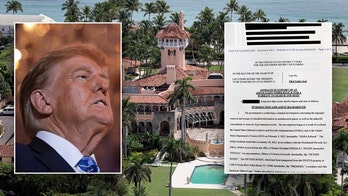WASHINGTON -- The Obama administration on Monday nearly doubled the number of countries that may face U.S. sanctions for not doing enough to combat human trafficking, calling on those and other nations to get serious and take tough steps to eradicate the lucrative illicit practice.
In its annual Trafficking in Persons report, the State Department identified 23 nations as failing to meet minimum international standards to curb the scourge, which claims mainly women and children as victims. That's up from 13 in 2010. Another 41 countries were placed on a "watch list" that could lead to sanctions unless their records improve.
The report analyzed conditions in 184 nations, including the United States, and ranked them in terms of their effectiveness in fighting what many have termed modern-day slavery. The State Department estimates that as many as 27 million men, women and children are living in such bondage around the worlds.
"All countries can and must do more," Secretary of State Hillary Rodham Clinton said in presenting the report. "More human beings are being exploited today than ever before."
"We're at critical moment in this fight," she said. "The problem of modern trafficking may be entrenched, and it may seem like there is no end in sight. But if we act on the laws that have been passed and the commitments that have been made, it is solvable. If we increase the pressure on traffickers and the networks they thrive in, we can set ourselves on a course to one day eradicate modern slavery."
Republican Rep. Chris Smith, an author of the law that established the report and offered protection to trafficking victims, said he was "deeply disappointed" that China was given a political waiver despite its contining and expanding problem of human trafficking, particularly sex-trafficking of women and girls.
"This political waiver for China is totally unacceptable," Smith said. "The Obama administration has again abandoned trafficking victims in China, who are predominantly women. It's shameful."
Among the countries on the blacklist are Cuba, Iran, Myanmar, North Korea and Sudan along with frequent U.S. foes Eritrea, Libya and Zimbabwe. Others are U.S. allies in the Middle East like Kuwait and Saudi Arabia while Papua New Guinea was cited as a repeat offender. Only one country, the Dominican Republic, was removed from the list.
The 11 new countries on the blacklist are Algeria, the Central African Republic, Equatorial Guinea, Guinea-Bissau, Lebanon, Libya, Madagascar, Micronesia, Turkmenistan, Venezuela and Yemen.
Separately, the report also cited six nations -- Chad, Congo, Myanmar, Somalia, Sudan and Yemen -- for using child soldiers and not taking steps to end the practice.




